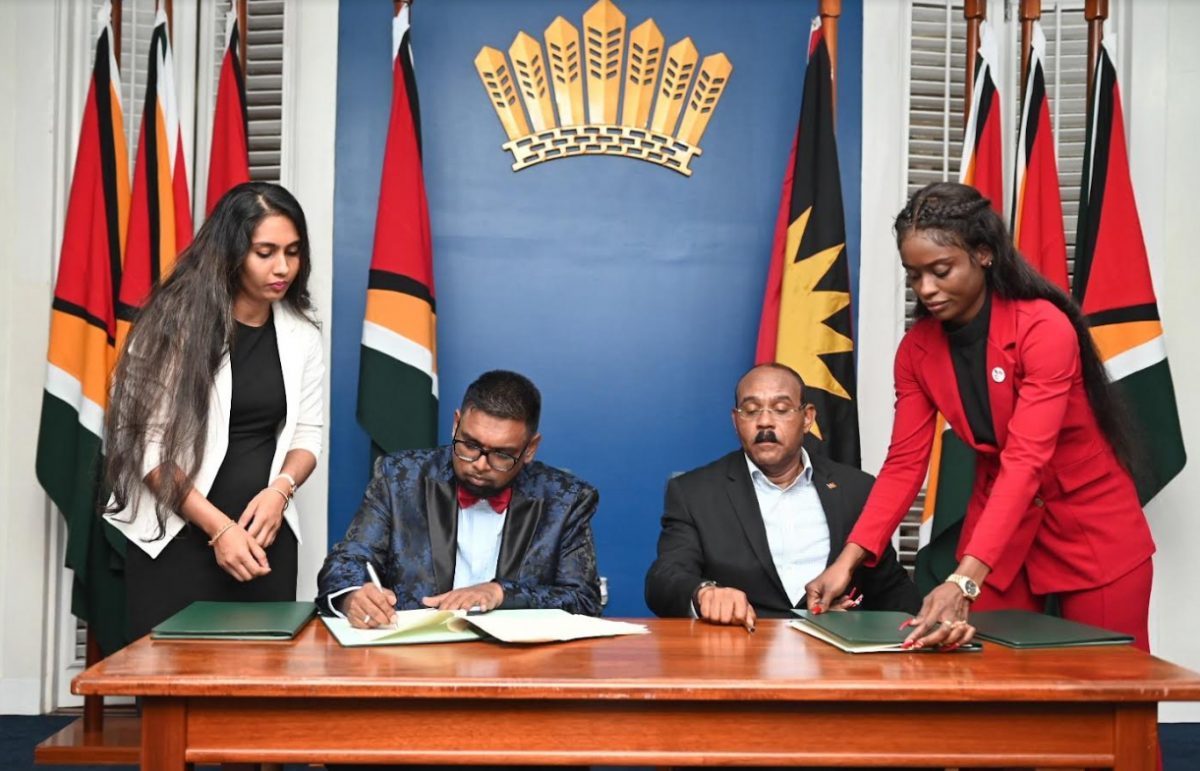Assuming that the recently signed Memorandum of Understanding (MoU) between Guyana and sister Caribbean Community (CARICOM) member country, Antigua, benefits from the requisite follow up which has been sadly lacking in these kinds of pursuits here in the region, then a new chapter could well begin in relations between the two countries that could, in some respects, serve as an example for the rest of the region. One makes this point conscious of the fact that agreements reached on a range of issues, not least some of those that have had to do with strengthening regional food security have ‘crashed and burned’ amidst a plethora of pronouncements regarding just how important those initiatives were to the forward movement of the Caribbean which have borne no fruit.
Prior to departing Guyana after attending last week’s 25 x 2025 regional forum here in Georgetown, Antigua’s Prime Minister, Gaston Browne, signed a wide-ranging MoU with Guyana’s President Irfaan Ali which provided commitments to bilateral cooperation in eight specific areas including tourism, financial services, agriculture, air transportation, and energy.
Guyana and Antigua, it will be recalled, along with Barbados, were the prime movers behind the 1965 Agreement at Dickenson Bay which ushered in the Caribbean Free Trade Area. (CARIFTA).
Over time, physical movement between the two countries accelerated and today the twin-island Caribbean Community (CARICOM) member territory has become home to significant numbers of a far-flung Guyanese diaspora.
At the signing ceremony in Georgetown last week, Prime Minister Browne remarked that he expected that the Agreement would “open opportunities for the private sectors of both countries in several areas, including tourism, an area in which the Antiguan Prime Minister declared his country is a “world leader.”
Business travel to Guyana has increased significantly on the back of recent near global interest in the investment possibilities that have materialised here out of the country’s oil discoveries and the prospect of Guyana becoming a lightning rod for international investor interest, going forward.
The Agreement between Guyana and Antigua and Barbuda also promises to open up opportunities for cooperation between and among financial institutions in the two countries in pursuit of an expansion of the range of services which they offer their respective clients.
President Ali, in his remarks during the signing ceremony, noted that there is every basis for the strengthening of economic relations between the two countries, given their potential for bringing benefits to their respective populations and conceivably to the wider region.
With regard to the air transportation dimension of the MoU signed by the two CARICOM leaders, President Ali said that this should be seen in the context of recognition by CARICOM Heads of Government who participated in the Georgetown event, of the important role which air transport has to play in the pursuit of regional food security. “We will closely examine the possibility of collaborating with Antigua and Barbuda in the provision of air transportation as an important element in moving produce from Guyana to other parts of the region,” President Ali is quoted as saying at the signing ceremony.
The two Caribbean Heads of Government have agreed on the establishment of a Working Group by June 7, possessed of a mandate to study and make recommendations on the expeditious implementation of the agreed areas of cooperation.










